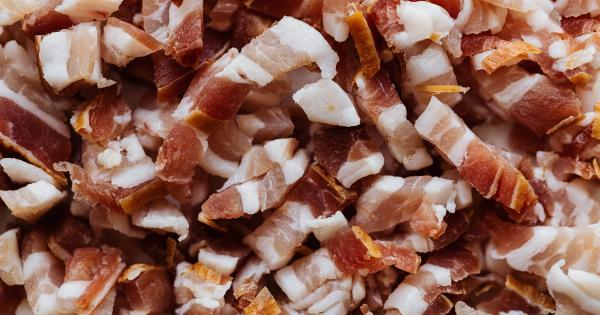Transitioning to a vegetarian lifestyle can be a wonderful journey towards improved health, environmental sustainability, and animal welfare.
However, it’s essential to navigate certain pitfalls that may lead to nutrient deficiencies or lack of variety in your diet. In this article, we will explore ten vegetarian traps that you should be aware of and provide helpful strategies for avoiding them.
The Protein Myth
One of the most prevalent concerns people have when considering vegetarianism is the belief that it is challenging to obtain adequate protein from plant sources alone.
While it’s true that certain plant-based foods may not contain all the essential amino acids found in animal products, a well-planned vegetarian diet can easily fulfill your protein needs. Include a variety of legumes, nuts, seeds, and whole grains in your meals to ensure you’re getting all the amino acids your body requires.
Overreliance on Carbohydrates
Another trap vegetarians may fall into is relying too heavily on carbohydrates. This can happen when individuals replace meat with simple carbohydrates such as white rice, pasta, or bread.
While these foods can be part of a healthy vegetarian diet, it’s important to also incorporate complex carbohydrates like quinoa, whole wheat products, and starchy vegetables. These complex carbs provide sustained energy and additional nutrients.
Vitamin B12 Deficiency
Vitamin B12 is primarily found in animal products, making it a potential concern for vegetarians. This vitamin is essential for nerve function and the production of red blood cells.
To combat B12 deficiency, include fortified plant-based milk, nutritional yeast, or take a B12 supplement recommended by a healthcare professional.
Insufficient Iron Intake
Iron deficiency is a common nutritional concern for vegetarians, as plant-based sources contain non-heme iron, which is not as readily absorbed by the body as heme iron found in animal products.
To enhance iron absorption, consume plant-based iron sources such as spinach, tofu, lentils, and beans together with vitamin C-rich foods like citrus fruits, bell peppers, or tomatoes. Alternatively, a healthcare professional can advise on iron supplementation if necessary.
Omega-3 Fatty Acids
Omega-3 fatty acids are essential for brain health and reducing inflammation. While commonly associated with fish, vegetarians can obtain these important fatty acids through plant-based sources like flaxseeds, chia seeds, hemp seeds, and walnuts.
However, the human body is less efficient at converting plant-based omega-3s into the most beneficial form of the nutrient, so it may be beneficial to consider an algae-based DHA/EPA supplement for optimal omega-3 intake.
Calcium Considerations
Calcium is crucial for bone health, and individuals often assume they need to consume dairy products to meet their calcium needs.
However, vegetarians have various plant-based options that are rich in calcium, such as fortified plant-based milk, tofu, tempeh, spinach, kale, and almonds. Ensure you’re obtaining an adequate amount of calcium from these sources to support your overall health.
Zinc Adequacy
Zinc plays a vital role in the immune system and other bodily functions. While it is more available in animal products, vegetarians can obtain zinc through plant-based sources like legumes, whole grains, nuts, and seeds.
However, phytic acid in some plant foods can impede zinc absorption. Soaking, fermenting, or sprouting these foods can help reduce phytic acid and enhance zinc bioavailability.
Processed Vegetarian Products
With the increasing popularity of vegetarianism, the market is flooded with processed vegetarian products like faux meats, burgers, and deli slices.
While these products can be convenient and tasty, they are often highly processed and contain additives, preservatives, and excessive amounts of sodium. It’s essential to consume these products in moderation and focus on whole foods for optimal health benefits.
Insufficient Variety
Another common trap is falling into a routine of consuming the same vegetarian meals repeatedly. To ensure you’re obtaining a wide range of nutrients, aim for variety in your diet.
Experiment with different fruits, vegetables, legumes, whole grains, herbs, and spices. Trying new recipes and exploring different cuisines can make your vegetarian experience more exciting and nutritious.
Lack of Knowledge
Lastly, a lack of knowledge about proper vegetarian nutrition can lead to unintentional nutrient deficiencies. Educating yourself about essential nutrients, meal planning, and balanced vegetarian cooking is crucial.
Consult with a registered dietitian specializing in plant-based diets to develop a personalized nutrition plan that addresses your specific needs.
Conclusion
By being aware of these ten vegetarian traps and implementing the strategies provided, you can navigate the challenges associated with vegetarianism and maintain a well-rounded, nutritious diet.
Remember to prioritize variety, educate yourself about proper nutrition, and use supplements when needed. A well-planned vegetarian lifestyle can be incredibly rewarding, both for your health and for the planet.





























